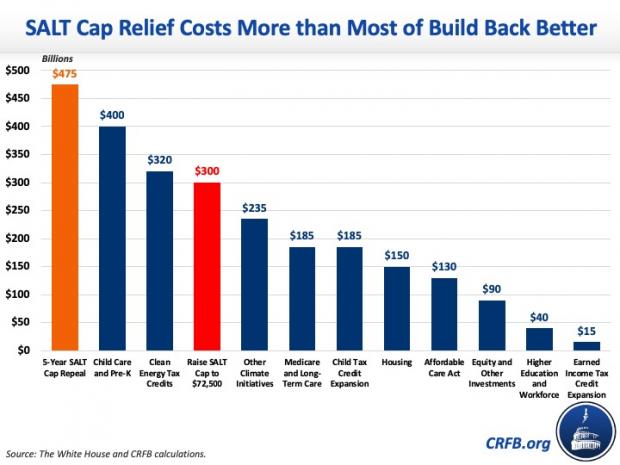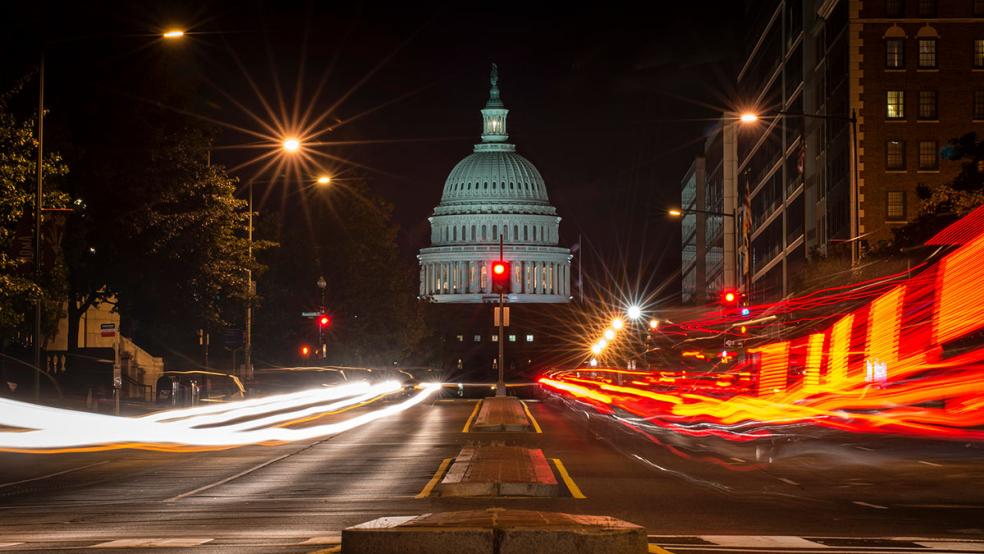The reckoning has begun. After suffering an Election Day drubbing on Tuesday — most notably with a loss in the bellwether Virginia gubernatorial race and a closer-than-expected gubernatorial contest in New Jersey — Democrats on Wednesday continued their push to pass their sweeping economic plan even as some key party members debated the message sent by voters.
Did Democrats lose support because of lawmakers’ failure to pass two major pieces of President Joe Biden’s agenda? Or were the results about sagging presidential approval ratings and economic concerns? Were they more a reflection of local issues, like education in the Virginia race, and weak individual campaigns? Or were they little more than a continuation of historical voting patterns?
As Democrats seek to change their electoral fortunes in 2022, the various interpretations of Tuesday’s results largely hewed to pre-existing lines of thinking.
Some centrists argued that progressives had hurt the party by delaying passage of the $1 trillion bipartisan infrastructure bill. “What I heard when I was out campaigning for the ticket was, ‘Hey, you guys got the White House, the Senate, the House. When are you going to get more things done?’” Sen. Mark Warner (D-VA) said, according to The New York Times. “I mean only in Washington could people think that it is a smart strategy to take a once-in-a-generation investment in infrastructure and prevent your president from signing that bill into law. And that’s somehow a good strategy?”
Sen. Joe Manchin (D-WV), who has objected to numerous elements of the Democratic social safety net and climate change package that progressives have wanted finalized before voting for the infrastructure bill, said the Virginia race signaled voter fears about Democratic plans to add trillions in new spending. “They were concerned about inflation, high costs, making it more difficult for them,” he said, according to The Washington Post. “And I think they spoke loud and clear at the voting [booth], so I hope everybody listens.”
Manchin appeared to once again be an outlier, though. Most in the party agreed that Tuesday’s results reinforced the need to stop the intraparty backbiting and resolve the lingering differences that have stalled action on both major pieces of legislation so that they could demonstrate — quickly — that they can govern. “I think it’s going to send a signal that we’ve got to produce. You know, the American public gave us a majority of both houses for a reason,” said Sen. Tim Kaine (D-VA). “We’ve got to get results for people, and if we do, we’ve got a good chance to get a whole lot of votes. But if we, you know, argue amongst ourselves, and we don’t produce, that puts us at risk.”
Rep. Tom Malinowski (D-NJ) echoed that takeaway: “The No. 1 concern voters have raised with me over the last several weeks has been inability of Congress and government in general to get things done at a time of great need for the country,” he told the Times. “So the best thing we can do in Congress is to pass these damned bills, immediately.”
Democrats Restore Paid Leave to Their Social Spending Plan
With that fresh urgency, congressional Democrats pushed Wednesday toward finalizing their Build Back Better plan, issuing a new, 2,135-page version of the legislation. Party leaders aim to immediately holding a procedural hearing on the package, potentially setting up a House vote by the end of the week. Yet even as they raced toward a vote, disputes over the substance of the bill continued.
“Democrats continued to spar over a plan to address immigration, for example, disappointing some left-leaning lawmakers who want to see the party take aggressive action to overhaul the system,” The Washington Post reports. “And they appeared especially at odds over an eleventh-hour effort to restore a plan to provide paid family and medical leave benefits for millions of Americans.”
The latest version of the package restores a plan to provide four weeks of paid family and medical leave. The measure would start in 2024 and be permanent, with a 10-year cost reported to be around $200 billion.
It’s a popular provision that many Democrats have pushed for but Manchin continues to oppose, at least as part of the reconciliation package. “I want to support paid leave. I want to do it in a bipartisan way. I've talked to Susan Collins [the Republican senator from Maine]. I've talked to colleagues on both sides. We both agree something can be done,” Manchin said.
In a letter to colleagues Wednesday, House Speaker Nancy Pelosi (D-CA) indicated that a single unnamed senator still opposes “a few of the priorities contained in our bill,” leaving negotiators still trying “to find common ground” on a final package. “And because Pelosi has vowed not to force House lawmakers to vote on anything that can't win 50 votes in the Senate, she's waiting for negotiators to iron out those remaining differences before the full House will consider the bill,” The Hill reports.
Pelosi’s push for a quick vote could also be delayed by a group of centrist House Democrats who insist that they won’t support the package until its costs have been officially scored by the Congressional Budget Office, a demand that could forestall action for up to two weeks.
Pelosi said in her letter Wednesday that Democrats have been informing the CBO and the Senate of changes to the legislation to help speed that CBO estimate and rulings from the Senate parliamentarian on whether elements of the legislation meet the special requirements to be included in a budget reconciliation bill, the process Democrats are using to avoid the threat of a Republican filibuster. The immigration provisions in the Democratic bill may not get the parliamentarian’s approval, posing another challenge for the package as a whole since a group of Hispanic Caucus members reportedly has vowed to oppose any bill that excludes those reforms.
State-and-Local Tax Deduction Also Back in Dem Bill
Blue state Democrats have been pushing hard to include a repeal of the $10,000 cap on the state and local tax (SALT) deduction to the Build Back Better bill, and it looks they’ve won that battle, at least for now. The latest version of the House bill would raise the value of the deduction to $72,500 per year, starting this year and lasting until 2031.
Critics on both the left and the right have emphasized the regressive nature of the SALT cap repeal. According to the Committee for a Responsible Federal Budget, the new proposal would cost $300 billion through 2025, and about $240 billion of that lost revenue would be claimed by households earning more than $200,000 per year.
The SALT cap repeal would also be one of the most expensive items in the Democratic bill. “Though this increase in the SALT deduction cap would be less costly than full repeal, it would still cost more than almost any other part of Build Back Better with just the child care subsidies and the combined costs of all clean energy tax credits costing more,” CRFB said Wednesday.
This chart shows the projected cost of the latest version of the repeal, along with other elements in the bill, including an earlier proposal that would have eliminated the SALT deduction cap entirely for five years.

The bottom line: Pelosi may essentially be daring Manchin to block the paid leave proposal, or the package as a whole. For now, though, it looks like the House is preparing to vote on its own version of the bill, potentially leaving the Senate to amend it to reflect late-stage negotiations and send it back to the House again. The process likely will take time, meaning that passage by Thanksgiving may still be the base case.





